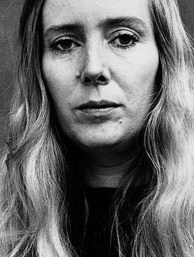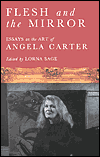Dave Eggers, The Circle. Knopf – TLS
There’s a moment in Alex Keshishian’s documentary, Madonna: Truth or Dare (1991), when Madonna’s lover, Warren Beatty, asks why she’s allowing herself to be filmed in conversation with her doctor. “Why stop here?”, she replies. “Yes,” Beatty laughs, aghast, “why would you say anything off camera? She doesn’t want to live off camera!” The exchange was funny because it revealed a generational gulf between the stars: Beatty wanted to live his ‘real’ life away from the lights, while Madonna was conducting an experiment to see how much of hers she could live in the open. At the heart of their disagreement were differing attitudes to privacy and shame, which twenty years ago seemed relevant only to those in the public eye. Today they are of concern to us all. Dave Eggers’s explores this shift in his new novel, The Circle, set in a near-future America, divided between “openness” evangelicals living online in a state of permanent transmission and exhibition, and a minority of appalled refuseniks, clinging to their reticence and anonymity.
Eggers’s thirteenth book, which begins as a satire on social networking but develops into something more like a full-blown dystopia, tells again that familiar story of an American nobody, Mae, who claws her way to the heart of power. That power now reside in The Circle, a monolithic internet company which has control of 90% of the world’s information searches. The company’s rapid success has come from unifying all the net’s business and social functions into one account, and adding an application called SeaChange: tiny cameras allowing users access to even the most far-flung or secret parts of the world and, in turn, for them to share with everyone in it, all that they are seeing and doing. The effect is to dissolve the barriers between the user, the net and the world into one seamless experience, TruYou – a new self that, as Eggers’s alarm bell of a novel suggests, is easy to harness and manipulate.
This is the second recent critique of the internet from a leader of America’s current literary scene, arriving shortly after Jonathan Franzen’s The Karl Kraus Project, in which the author laments our addiction to the “new infernal machine”. Both writers are just old enough to have a sense of how this technology is changing us and what we’re losing as a result. Theirs are rearguard actions, inescapably nostalgic and resistant to the net’s possibility for expanding the humanity they fear is being eroded. Such a conservative impulse does not mean, however, that The Circle is anything less than compelling, full of psychological insight and, above all, important.
When Mae arrives at the campus where The Circle is based, she thinks she has landed in heaven. It seems the opposite of her last job at a utilities company in a brutalist, functional building. Here among the glassy cathedrals and rolling lawns work has become a creative activity, with the best minds of her generation sharing ideas among the amphitheatres, gymnasiums and dormitories. By night, there are firework parties, during the day “musicians, comedians, writers” stroll through halls named Renaissance or Old West: nothing is bound by history and everyone’s voice can be heard. The Circle is so inclusive it precludes the need for opposition: even “alternative comedians” have been co-opted and, glad of the exposure, they – like all the artists and entertainers – work for free: “Oh god, we don’t pay them”.
The openness is illusory, however: behind the unified operating system lie unchallenged dogma and Orwellian slogans; and behind this, a shadowy elite controlling a commercial machine. As Milan Kundera saw, totalitarian systems begin with “the dream of paradise, the age-old dream of a world where everybody would live in harmony, united by a single common will and faith, without secrets from one another”, but they move quickly into compulsion, because to make them work everyone has to get on board. Whenever Mae is less than fully cooperative, falling prey to shame, obfuscation and lying, she is subject to corrective lessons that are both upbeat and coercive – “Sound good?”, “Incredible, right?”. Made to feel guilty, she consents to becoming fully “transparent” and is filmed even during a doctor’s examination in adherence with the company line that all human experience produces “teachable moments”, that exposure increases civility (in the dark, people will do bad things).
When Mae introduces SeeChange into her parent’s home, though, they sabotage the filming, unwilling to turn her father’s illness into an object of study. An old lover is equally resistant, and his desperate attempt to elude The Circle’s net results in an increasingly bizarre and frantic episode in which Mae chases him down with drone cameras. At the end of the novel, the creator of The Circle (an obvious avatar for Eggers), horrified at what has transpired from his playful ideas, diagnoses the problem: “infocommunism…paired with ruthless capitalistic ambition”, the anxiety of uncertainty turned into an absolute insistence on seeing and knowing all. In the face of this, he proposes “The Rights of Humans in a Digital Age” – primarily the right to anonymity, and the assertion that “Not every human activity can be measured”. And it is in this manifesto spirit that the novel can best be read.
What’s interesting about The Circle, is that it comes from a writer who understands the value of the “infernal machine”, having established a successful literary website. His skepticism, then, has deeper roots. These concern the easy gratification of networking, and the neediness it instills, eroding what’s left of America’s rugged individualism. More important, is the fear that the enlightened “solvable future” insisted upon at The Circle, endangers fiction. Eggers makes a competing demand: the right to turn out the lights. Because it is here in the dark, he thinks, confronting what is unknown in the world and in ourselves, that we are impelled to do what The Circle persuades Mae is wrong: “to make up all kinds of stories”.
This review appeared as ‘Infernal Desiring Machines’ in the TLS on 29.11.2013. Shortly after its publication, 500 writers from 82 countries – including Dave Eggers – published a petition calling for an International Bill of Digital Rights.














